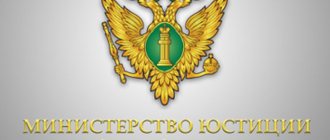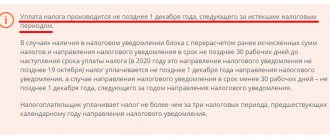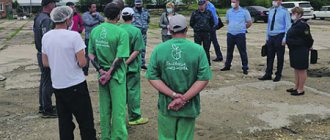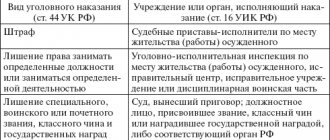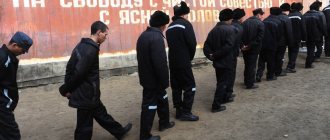The head of one of the city enterprises was recently released on parole. At the same time, it should remain under the control of government authorities for another couple of years. When I began to wonder who would monitor him, I came to the conclusion that this was the responsibility of the criminal-executive inspection.
- What is such an inspection?
- What do the employees of this organization do?
- What responsibilities and rights are assigned to the inspection?
The answers to these questions can be found in this article.
General essence and purpose of the UII
Once a criminal is formally sentenced in a criminal case, the process of execution begins. Even if the offender was not sentenced to a real sentence, if he was not imprisoned, his life for some time will be under the close control of employees of a special organization, that is, the criminal executive inspection.
The terms of reference of the UII are strictly regulated by modern legislation.
The inspector monitors not only convicts and those sentenced to alternative forms of restriction of freedom. Under his control are those who have already been released from prison, but must remain under close supervision.
Features and rules of operation of the UII
The Executive Criminal Inspectorate is an official division of the Federal Service that carries out punishments awarded by the Ministry of Justice of the Russian Federation.
Currently, there are approximately 2,500 inspectorates operating throughout the state. They are distributed exclusively according to territorial characteristics.
If a criminal is given a sentence other than imprisonment, he will serve it exclusively at his place of residence. If the offender receives a real prison term, during the execution of the punishment a copy of the agreement is sent to the pre-trial detention center in which he is being held. After this, it is decided where to send the criminal by stage.
A copy of the verdict is sent to the Penitentiary Inspectorate if the offender is sentenced to:
- Mandatory work.
- Corrective measures.
- Probation.
- Restriction of freedom.
- Prohibition from working in a previously held position.
- Deferment of execution of a sentence due to illness or birth of a child.
On the date of announcement of the verdict, the offender fills out an official obligation to appear at the correctional institution in the judicial organization. After some time, this document, together with a copy of the verdict, is handed over to the inspector of the correctional department.
As soon as the sentence passed is given legal force, the offender must appear at the territorial correctional institution. Here the person responsible for the violator will register him. He will ask you to fill out a questionnaire and special reporting papers.
As soon as the punishment is fully served, the documents will go into the person’s personal file. After serving the prescribed sentence, the UII monitors the life and activities of these people.
Responsibilities and rights of the UII
Employees of the Penitentiary Institution perform not only special supervisory functions, but also educational ones.
The main task of the Penitentiary Inspectorate is to monitor the execution of the assigned punishment, but also to exert a positive influence on the convicted person in order to reduce possible recidivism.
Among the main responsibilities of the UII are the following:
- Maintaining records of all violators.
- Explaining to them the rules and procedure for the prescribed punishment.
- Coordination with local special places for serving sentences.
- Organization of educational work with criminals.
- Submitting requests to the court for replacement of punishments with more severe ones or for complete release from them.
- Detection of reasons that could cause a relapse.
Along with certain responsibilities, UII employees have certain rights. Here are the most basic ones:
- Preventive conversations with convicts.
- Detection of reasons for violation of compliance with serving the sentence.
- Explanation of the rules for serving sentences.
- Visiting convicts at their place of residence.
- Bringing violators to the police if they avoid appearing.
- Control over the transfer of funds allocated for the execution of punishment.
These are the most basic rights and responsibilities of UII employees, but they are not a complete list.
Information about the activities of the UII
In relation to a specific convicted person or a person under house arrest, the powers of the supervisory authority are exercised by the police department at his place of residence. Thus, it is necessary to register, go to check in, provide documents and resolve all other issues with your local police department.
To find out the address of the Penitentiary Directorate and other information, you can go to the official website of the Federal Penitentiary Service of your region and find a section that provides information about the structure of the Directorate and its subordinate bodies. Since police officers usually work in conjunction with local police and, in particular, local police officers, information can be clarified at the local police department. Sometimes services are even located in the same building next door.
All information about the procedure for serving the sentence, conditions, rights and responsibilities should be obtained from your correctional inspector. At the first stage, it is important to register on time and comply with all regulations. When changing the place of residence, if this is allowed by the order of serving the sentence, the correctional institution is also changed - the case is redirected according to territoriality.
Powers of the Inspectorate for Criminal Acts
Each prison inspector is obliged to monitor all spheres and areas of the life of a convicted person:
- General lifestyle.
- Behavior in free time.
- Fulfillment of assigned job duties.
In some cases, the scope of control may change. It all depends on the punishment imposed and on the peculiarities of the work of the penitentiary institute. Here are several functions of the UII depending on the punishment imposed.
Probation
In this case, a person is not isolated from society, but his ordinary life undergoes certain changes. He must adhere to the established rules. In relation to such criminals, correctional officers act as follows:
- If the person who has received the sentence does not appear at the correctional institution at the appointed time, the inspector will come to him to warn him of responsibility.
- On the date of appearance, the officer explains to the convicted person his rights and obligations.
- A special personal file is opened.
- Awarding prohibitions and explaining the required responsibilities.
- Visit to a psychologist.
Mandatory working hours
In the process of awarding this form of punishment, the convicted person must serve several additional working hours, in addition to his main job. The execution of such punishment is carried out in the following sequence:
- Deciding on which company the convicted person will be sent to.
- The appearance of the convicted person at the Penitentiary Inspectorate is required. The organization will explain his rights and responsibilities.
- Monitoring the execution of mandatory work.
- Receive an order indicating the exact time of appearance.
- Each convict works at such jobs for up to 4 hours a day.
- If unexcused absences are noted, the inspector conducts a preventive conversation.
If, after a warning, a person does not show up for work, the inspector must apply to the court to replace the punishment.
Correctional work
This type of punishment can be served at the main official place of work or in another organization designated by the Penal Inspectorate. There is no particular difference, the main thing is that certain amounts from the income received are transferred every month. As a rule, 20% of the total salary is deducted.
In many cases, prisoners are sent for correctional labor to plant landscaping in yards and clean areas located near their homes.
In the case of this form of punishment, the inspector performs the following functions:
- Monitors the receipt of receipts confirming due payments.
- Maintains time sheets for hours worked.
- Monitors compliance with the rules of execution of punishment.
- Monitors compliance with workers' rights.
House arrest
This is a special restriction on the freedom of the convicted person. He continues to live in his home, but within certain limits. Their compliance is monitored by the UII, and simultaneously with the police. Among the basic rules that a convicted person must observe are:
- Prohibition to leave the house or apartment.
- It is strictly forbidden to communicate with accomplices.
- Many convicts are required to wear special bracelets.
If a person tries to escape, the inspector receives a corresponding notification. He immediately goes to the criminal’s place of residence and begins searching for him. If the convicted person cannot be found within 24 hours, the question of searching for the offender is raised.
Structure and powers of the Federal Penitentiary Service
Criminal-executive inspections are territorial divisions of the Federal Penitentiary Service at the local level, mainly at the district level. Above are the Departments of the Federal Penitentiary Service, which were created and operate on a regional basis.
Regulatory framework:
- Criminal Executive Code (PEC).
- Criminal Procedure Code (CPC).
- Decrees of the Government of the Russian Federation.
- Departmental regulatory legal acts through the Ministry of Justice of the Russian Federation and the Federal Penitentiary Service.
In total, there are about 2.5 thousand UIIs in Russia. Basically, these bodies register persons who have received a suspended sentence of imprisonment, a suspended sentence, or have been sentenced to compulsory, forced, correctional labor, as well as additional types of punishment.
What does the criminal enforcement inspectorate do? Key Responsibilities:
- Keep records of supervised persons, carry out explanatory and educational work with them, monitor their behavior at the place of work, study, residence and compliance with the restrictions established by the court.
- Prevent the commission of crimes and offenses by controlled persons.
- Provide conditions for serving sentences in the form of forced, corrective, and compulsory labor in cooperation with other state and local authorities.
- Carry out initial measures to search for controlled persons who are evading serving their sentences and (or) have fled from their place of residence in an unknown direction.
- Submit, in accordance with the established procedure, submissions to the court on issues of further serving the sentence and release from it, establishing and canceling obligations (restrictions) for convicted persons.
- Coordinate or allow convicted persons certain actions that are related to serving their sentence and compliance with the obligations (restrictions) established by the court and the law.
The specific powers of the UIN (rights and obligations) depend on what kind of sentence the convicted person is serving.
Probation
Persons who received suspended imprisonment with a probationary period are the main contingent registered with the Penitentiary Institution. In this case, the penal inspection operates at the place of residence of the convicted person.
How is a suspended sentence executed?:
- A probationer is required to register with the correctional institute at his place of residence (registration) and regularly go to check-ins. How to properly report after a verdict is decided by the court or, if the court has not determined, by the Criminal Investigation Department. In any case, everything must be explained by the inspector during the convict’s first visit to the inspectorate.
- Accounting is carried out personally. Each convicted person has his own personal file. A prison inspector has the right to check the working (study) conditions of a convicted person, visit him at home, and request characteristics regarding lifestyle and behavior. Penitentiary inspectors have the right to involve internal affairs bodies in carrying out their functions. Usually the work is carried out in cooperation with local police officers.
- If the court assigns certain duties to a convicted person, the Criminal Investigation Department verifies their fulfillment. If additional types of punishment are imposed, the inspector must monitor their execution.
- As soon as the probationary period has passed and there are no grounds for its extension, the convicted person is removed from the register and is considered to have served his sentence.
As an incentive measure, the correctional inspectorate has the right to prepare a submission to the court for the early (before the expiration of the probationary period) release of the convicted person from punishment.
Mandatory work
When a sentence is imposed in the form of compulsory labor, the convicted person must be brought to it within 15 days from the date of receipt of a copy of the sentence by the Penitentiary Inspectorate. Accordingly, within the same period he must register with the inspectorate.
In addition to all the functions that the Inspectorate performs as part of the control over probationers, during compulsory work the inspectorate must:
- coordinate the list of types of work and objects for their implementation presented by the municipality;
- keep records of the time worked by the convicted person.
Serving compulsory work is similar to performing ordinary labor functions. Only this is not the main work, but, let’s say, additional work. As a rule, we are talking about unskilled labor, often at housing and communal services enterprises. Typical options are garbage removal, snow removal, etc. The convict works for free and is obliged to comply with labor regulations and discipline. His main task is to work the assigned number of hours conscientiously and without violations. Accounting and control of serving the sentence are carried out mainly based on information provided by the employer.
Forced labor
Forced labor is served in special centers at the place of residence of the convicted person or, if the first is impossible, in a neighboring region. The convicted person must arrive at the appropriate correctional center independently on the basis of the order received from the correctional institution. The order is issued within 10 days from the moment the inspection receives a copy of the court verdict. If the convicted person is in custody, he goes to the correctional center under escort. If he evades receiving an order or fails to comply with it, the convicted person is forcibly sent to the place of serving his sentence.
Correctional work
Correctional labor is a less severe punishment than forced and compulsory labor. The convicted person can work at his place of work. And only if there is no such thing, the UII will direct him to an object included in the list prepared by the local authorities. Typically, such objects and types of work are not very different from those included in the list for serving compulsory work.
The powers of the Penitentiary Inspectorate in relation to those sentenced to correctional labor are almost the same as in the case of compulsory labor. The inspectorate registers the convicted person, conducts explanatory and educational work with him, and monitors the progress of serving his sentence. The convicted person receives a salary, but minus the withholding established by the court. He cannot resign without the permission of the Executive Directorate.
Restriction of freedom
Restriction of freedom is a relatively new type of punishment. The UII is entrusted with full supervision of his departure in accordance with the established procedure and conditions.
Within 15 days from the date of receipt of a copy of the verdict, the Penal Inspectorate sends the convicted person a notice of the need to appear at the inspection and register. On the first visit, the convict is photographed and fingerprinted. From this day the period of restriction of freedom begins.
The sentence is served at the place of residence. The main task of the convicted person is to appear at the correctional facility on time for registration and comply with all restrictions established by the court. Typically, responsibilities include not leaving your permanent place of residence, not visiting certain places, getting a job, and behaving positively. In exceptional cases, a convicted person may violate the established restrictions, but not all of them and only with the consent (permission) of the correctional inspector.
Additional penalties
If, simultaneously with the main punishment, the convicted person is given a fine or deprivation of the right to hold certain positions (engage in certain activities), then the responsibilities of the Penal Inspectorate include monitoring the serving of these types of punishments. It is carried out as part of monitoring the execution of the main punishment, but is monitored separately. Under certain conditions, problems with the execution of an additional punishment may serve as a factor for revising the main punishment in the direction of making it more severe. In the case of suspended imprisonment, the probationary period may be extended or the suspended sentence may be replaced with a real one. All this is done by the court on the proposal of the UII.
Other powers of the UII
Other powers of the UII include accounting and control of persons:
- Those released from serving their sentences on parole.
- Released from places of imprisonment due to the replacement of punishment with a more lenient one.
- Exempt from punishment due to serious illness or disability.
- Those sentenced to a suspended sentence.
With the advent and active spread of the preventive measure in the form of house arrest, the police department was also assigned the responsibility of monitoring suspects and accused persons to whom such a measure was applied by the court.
Complaint against employees of the Penitentiary Inspectorate
Inspectors of the control organization must carefully monitor the prisoner and his execution of the prescribed punishment. The UII is obliged to act within the framework of entrusted powers and try to prevent violations of the rights of all participants. If the inspector exceeds his authority, the convicted person has the right to appeal his actions.
Among the main violations that are often committed by employees of the Penitentiary Inspectorate are:
- Forced labor in the presence of certain medical contraindications.
- Prohibition on permitted walks within a radius of 1 km during house arrest.
- The desire to force the arrested person to do something not provided for by law and beyond the scope of the sentence.
- Checking your place of residence at night.
- Unreasonable refusal of requests and petitions of convicted persons.
- Illegal disclosure of personal information about a convicted person.
A well-drafted complaint is submitted to the district prosecutor's office. It is addressed to the chief prosecutor. The document requires a detailed description of all recorded violations by the inspector and references to regulatory requirements. The complaint is considered for about 30 days. During this time, all possible necessary checks are carried out.
Speaking about the main thing
- Convicts are not recommended to violate the terms of the imposed sentence.
- If you violate penalties in the form of probation or house arrest, you can get a real sentence.
- The Penitentiary Inspectorate operates in the system of the modern Criminal Code, performing the functions of supervisory control over the correct execution of the prescribed punishment and ensuring optimal security.
- Criminals are required to comply with the rules and recommendations of the penal institution.
- The subsequent fate of the sentence directly depends on the actions of the criminal investigator.
The inspector helps
The inspector of the Criminal Investigation Department is not a robot and is the executor of putting the punishment into effect, and also exercises control over the convicted person due to the performance of his official duties.
ATTENTION !!! Thus, when a criminal is corrected, as well as his obvious correction, the inspector has the right to ask the court to mitigate the imposed punishment. At the same time, the correctional officer can ask not only for a reduction in the sentence or its mitigation, but also for its complete termination.
This fact is an additional incentive for the convicted person and gives him hope and the opportunity to improve and quickly begin to lead a full life.

